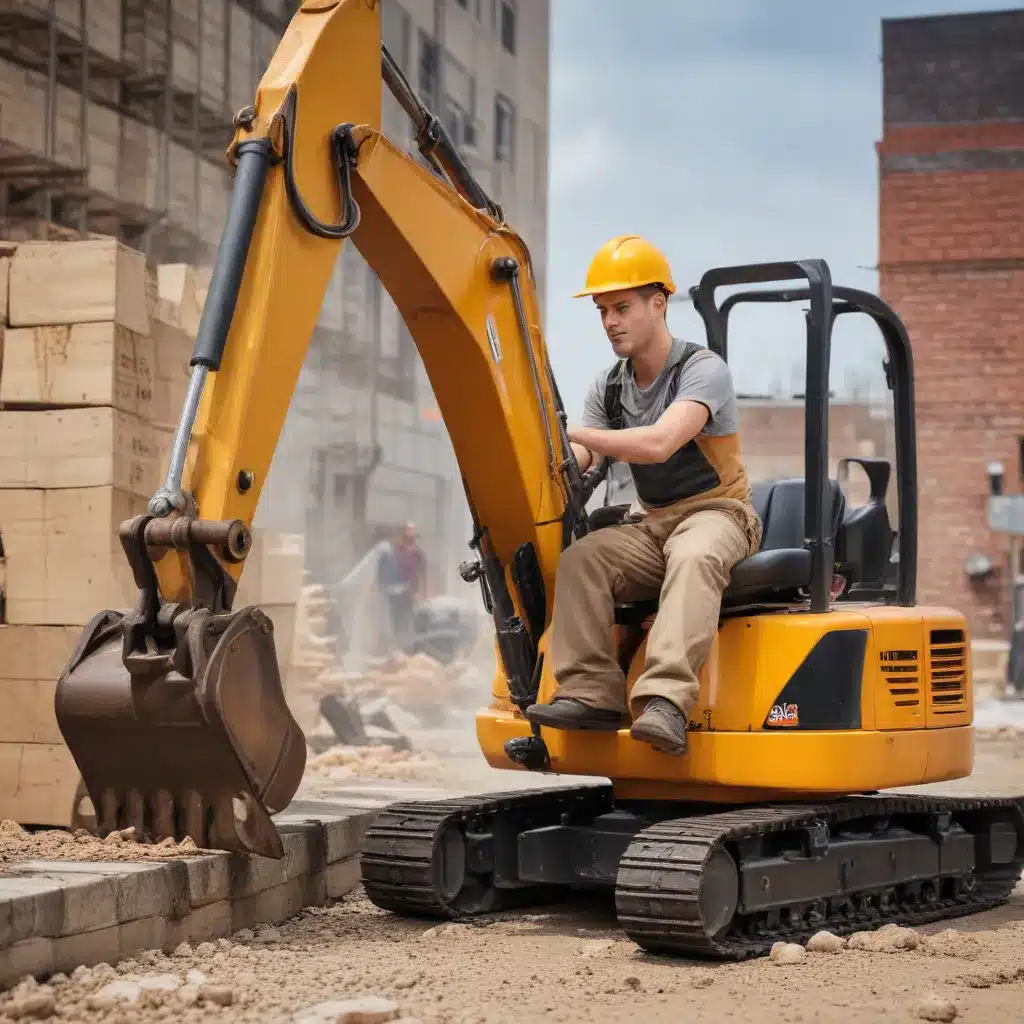
Understanding the Risks of Rental Equipment
Operating a business that utilizes heavy equipment and machinery comes with inherent risks. Whether you own or rent the equipment, accidents and mishaps can occur at any point – during transport, on the job site, or while in storage. These incidents hold the potential to result in costly property damage, personal injuries, and even lawsuits that can threaten the very survival of your company.
As a seasoned expert in the forklift, warehousing, and logistics industries, I’ve seen firsthand the importance of proactively managing liability exposures. Rental equipment, in particular, adds an extra layer of complexity, as you may not have full control over how it is used or maintained. That’s why it’s crucial to understand the insurance requirements, protection options, and risk mitigation strategies available to safeguard your business.
Key Rental Equipment Liability Coverages
When renting heavy machinery like forklifts, cranes, or excavators, there are several essential insurance policies you should have in place:
General Liability Insurance: Also known as “rental liability coverage,” this protects your business from lawsuits alleging bodily injury, property damage, or financial losses resulting from your daily operations or the use of the rented equipment. It covers legal and settlement costs, as well as medical expenses for client injuries.
Equipment Insurance: This coverage pays to repair or replace rental equipment that is lost, damaged, or vandalized – whether due to an accident, natural disaster, or client misuse. It serves as a form of “inland marine” insurance, protecting your assets during transport and on-site.
Commercial Property Insurance: If your business operates out of a physical location, this policy safeguards your building, inventory, and other assets from damage caused by perils like fire, storms, or theft. It can also provide compensation for lost income if the incident disrupts your operations.
Workers’ Compensation Insurance: Required in most states, this coverage shields your company from the financial burden of work-related injuries and illnesses, paying for medical care, disability benefits, and death benefits.
Excess Liability Insurance: Also known as an “umbrella policy,” this adds an extra layer of liability protection above your standard coverage limits, shielding you from catastrophic claims that exceed your primary policies.
Navigating the Rental Equipment Protection Landscape
While these insurance policies provide crucial protection, it’s important to understand the nuances between “insurance” and other rental-specific “protection” options:
Rental Equipment Protection (REP): Offered by equipment rental companies, REP covers damage, loss, or theft of the rented machinery, typically for a small deductible. However, it does not extend to liability claims or injuries.
Limited Damage Waiver (LDW): Similar to REP, an LDW caps your financial responsibility for damage to the rented equipment itself. But like REP, it does not protect against liability issues.
Rental companies may require you to carry your own general liability and property insurance, or purchase their REP or LDW coverage. It’s vital to carefully review the terms and exclusions of any rental contract, as these protection plans may not provide comprehensive coverage.
Proactive Risk Management Strategies
Beyond securing the right insurance policies, there are several proactive steps you can take to minimize liability exposures and protect your business:
-
Establish Equipment Selection Criteria: Develop a set of standards to guide your rental equipment choices, ensuring you select the right machines for each job. Documenting this process can help demonstrate due diligence if liability issues arise.
-
Require Proper Licensing and Training: Ensure all employees who operate rental equipment are fully licensed and trained on safe usage. Clearly communicate that unlicensed operators are strictly prohibited.
-
Maintain Detailed Documentation: Keep meticulous records of the equipment’s condition, usage, and any incidents or damage. This documentation can be crucial evidence if liability claims surface.
-
Develop Incident Response Protocols: Train your team on the proper procedures for responding to accidents or equipment failures, equipping them with the necessary materials like first aid kits, measuring tools, and recording devices.
-
Consider Business Structure Protections: Explore options like forming a limited liability company (LLC) or corporation to shield your personal assets in the event of a catastrophic liability claim.
Partnering with the Right Rental Provider
When it comes to managing rental equipment liability, your choice of rental provider can make all the difference. Seek out a trusted, experienced partner like Forklift Reviews that can provide guidance on insurance requirements, protection options, and risk mitigation strategies.
A reputable rental company will work closely with you to understand your unique business needs and ensure you have the appropriate coverage in place. They can also offer valuable training resources, maintenance programs, and proactive support to help you navigate the complexities of rental equipment liability.
By combining the right insurance policies, prudent risk management tactics, and a collaborative rental partner, you can confidently protect your business and assets while reaping the benefits of utilizing heavy equipment to drive your operations forward.
Conclusion
Operating a business that relies on rental equipment requires a strategic, multi-faceted approach to managing liability exposures. From securing essential insurance coverages to implementing proactive risk mitigation strategies, there are numerous steps you can take to safeguard your company’s financial well-being and long-term success.
By understanding the nuances of rental equipment liability and leveraging the expertise of trusted industry partners, you can confidently navigate the challenges of this dynamic landscape. Remember, the time and resources invested in protecting your business now can pay dividends in the future, helping you weather any storms that may arise.
If you have any further questions or need assistance in reviewing your rental equipment liability coverage, I encourage you to reach out to the team at Forklift Reviews. We’re here to provide the insights and support you need to keep your operations running smoothly and safely.

